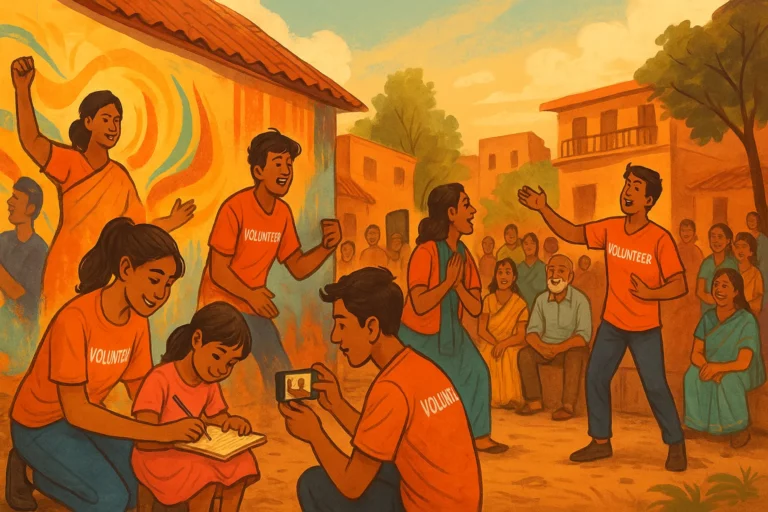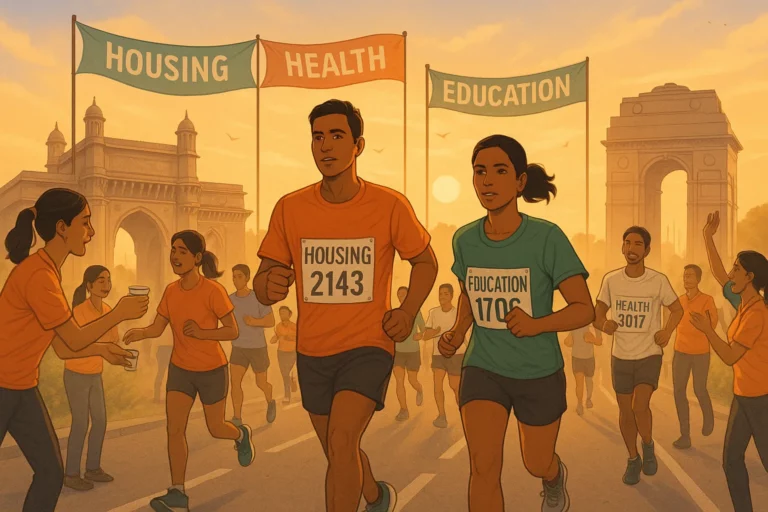Volunteering is more than a good intention—it’s a skillset. And just like any profession or social role, being effective as a volunteer requires learning, reflection, and growth. Across India, a new generation of young changemakers is stepping up, but to lead real impact, they need tools, not just motivation.
From interactive webinars to step-by-step handbooks, organizations are now providing structured resources to help volunteers not only do more—but do it better.
Why Training Matters in Volunteer Work
Volunteers are often placed on the front lines of community service—whether it’s teaching in schools, helping during natural disasters, or advocating for social causes. Without training, even the most enthusiastic participant can feel overwhelmed or unprepared.
Providing educational resources helps in:
- Developing communication skills (especially in diverse communities)
- Understanding ethical volunteering practices
- Improving event planning and community outreach abilities
- Building emotional intelligence when working with vulnerable populations
Training builds confidence. And confidence leads to action that actually works.
Key Resource Types Available for Volunteers
Let’s break down the most accessible and impactful formats that are currently supporting volunteer development in India:
Volunteer Handbooks and Guides
Many national and international NGOs offer downloadable PDFs or print-ready guides covering topics like:
- Basics of volunteering
- Leadership in community projects
- Health, safety, and first-aid protocols
- Conflict resolution
Example: UNV India’s volunteer toolkit outlines essential behaviors, values, and local engagement models.
Webinars and Online Courses
Live and recorded webinars allow young people to learn directly from experts, activists, and experienced volunteers. Topics range from project management to mental health in the field, and sessions often include Q&A, real-life examples, and opportunities for networking.
Platforms like:
- MY Bharat (Mera Yuva Bharat)
- iVolunteer India
- UNV India’s YouTube channel
…regularly publish free online learning modules.
Mobile Learning Platforms
Smartphone-based apps are gaining traction, especially in rural areas where desktop access is limited. These apps allow microlearning—short, skill-based lessons volunteers can access any time.
Apps such as:
- DIKSHA (Ministry of Education)
- Josh Skills
- Coursera for Government Programs
…are helping bridge digital divides while keeping content localized and youth-friendly.
In-Person Training and Community Workshops
Some organizations still prioritize on-ground engagement through skill labs, field practice, and mentoring. These include:
- Group simulations
- Role-playing exercises
- Field visits and project walkthroughs
Programs like Teach For India, Smile Foundation, and Youth Ki Awaaz offer such learning journeys for active volunteers and fellows.
Building a Culture of Learning in Volunteerism
When volunteer programs invest in education, they create long-term social value. Empowered volunteers go on to:
- Launch their own initiatives
- Train others in their community
- Scale small ideas into sustainable movements
More than that, they gain transferable skills that help in career building—like teamwork, adaptability, and empathy.


